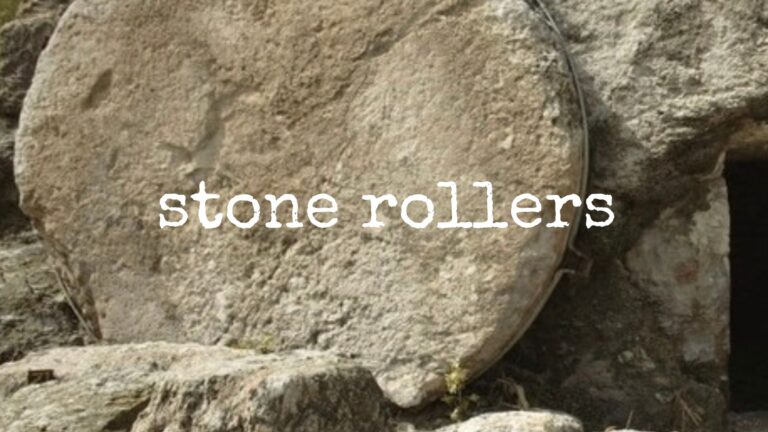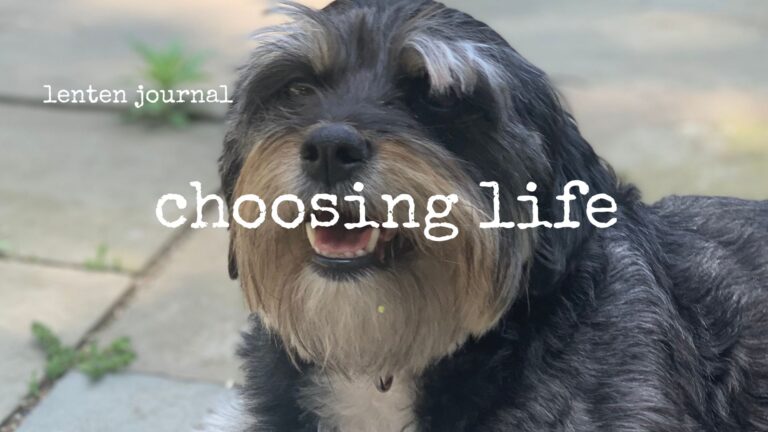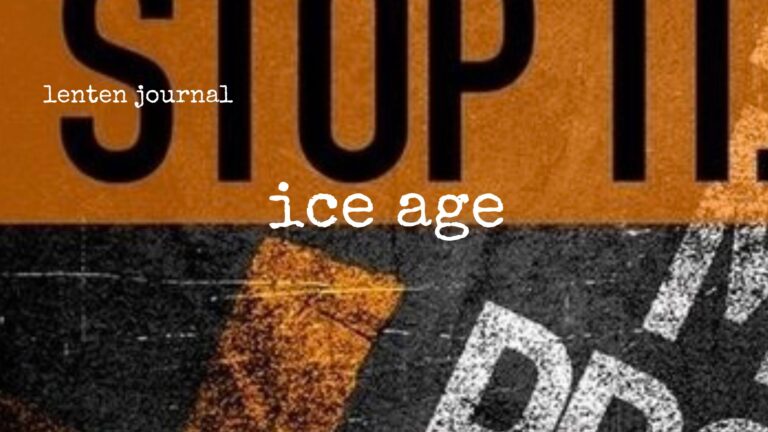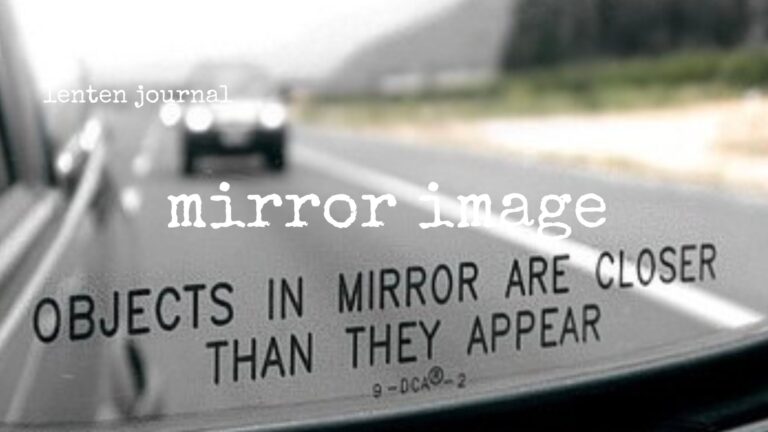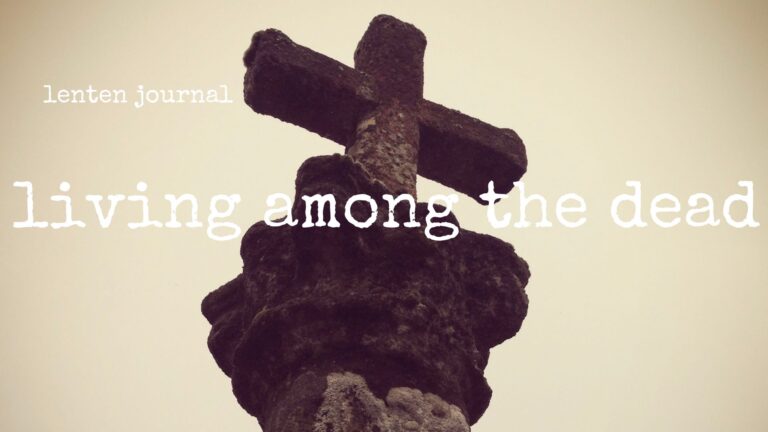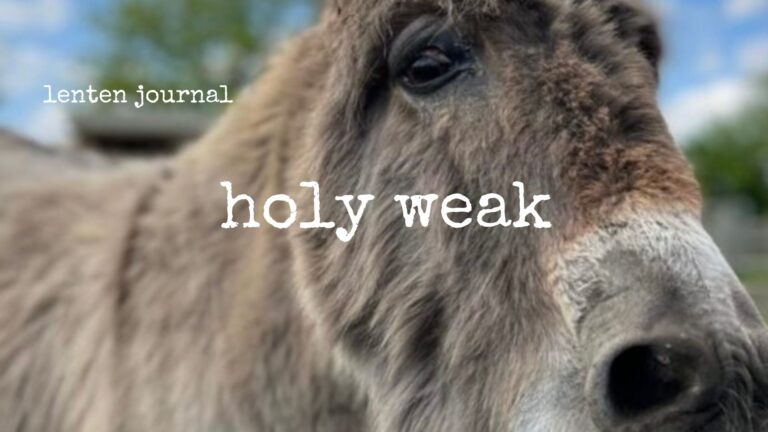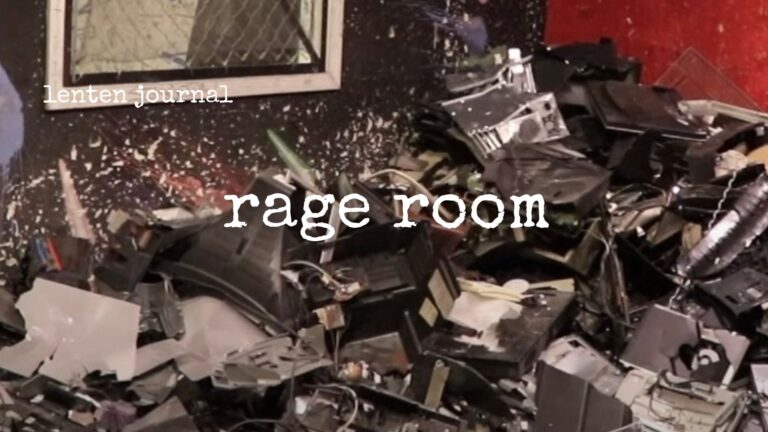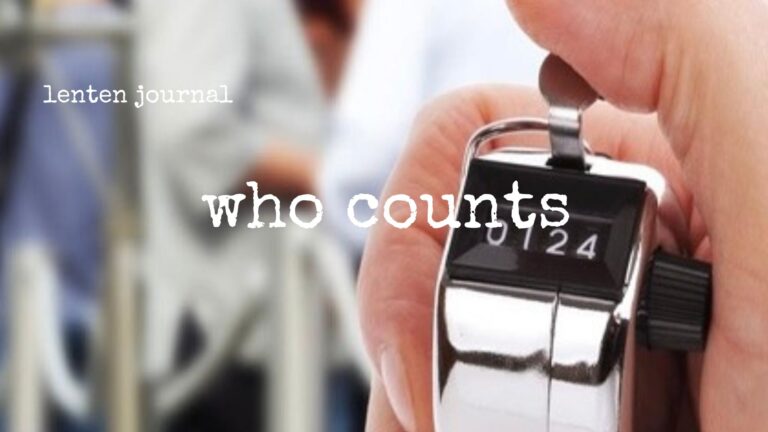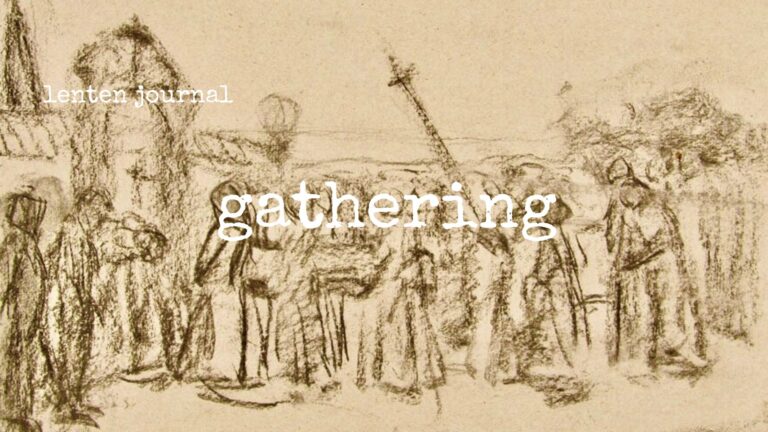My sermon for this morning.
________________________
No one remembered exactly what happened.
They knew the tomb was empty when those who came to anoint the body got there—but the list of exactly who went to the tomb with Mary Magdelene differs from gospel to gospel, though all four make it clear that it was the women who first learned that Jesus was resurrected.
The men—the ones who get called “the disciples”—had fled the scene of Jesus’ execution and had gone into hiding. The women were the ones who stayed until Jesus had died. And they were the ones who went to care for the body once the sabbath was over.
The Roman practice was not to take the bodies of the executed down from their crosses, but to leave them to decompose, both to even further humiliate the one who had been killed and their families, and also to serve as a warning to others. Intentional humiliation was part of the plan.
Jewish tradition said the body had to be buried before the sabbath began. It was an essential kindness. Joseph of Arimathea, who was a follower of Christ and also quite wealthy, had a tomb (actually one intended for him) and also had the influence, as a rich man, to negotiate with those bent on death and to see to it that Jesus’ body was taken down and cared for rather than being left to rot in public. Jesus was placed in the tomb just before sabbath began on what we would call Friday evening.
As we know, right about dawn on Sunday morning, the women went to the tomb to finish the anointing, which, in those days, was work only done by women. They were neither rich nor influential. Most of the graves to which they might have attended would have held more than one body and probably had some way to open the crypt. Jesus’ body was sealed in a tomb intended only for one, and for a wealthy one at that, so it would have been well secured.
When it comes to the stone, each gospel account tells of its removal a bit differently. Matthew says there was an earthquake that made it roll away, even frightening the security guard. Both Luke (which we read today) and John simply note that the stone was moved. Mark recounts that as the women were walking to the cemetery, they asked themselves, “Who will roll back the stone from the tomb for us?” because they knew it wasn’t something they could do themselves.
I know I was supposed to focus on Luke this week, but that question grabbed me as I read the gospels again: Who will roll back the stone from the tomb?
Whatever happened that turned the crucified Jesus into the risen Christ could not have happened unless someone had rolled away the stone. Resurrection requires a rolling stone—and I don’t mean Mick Jagger.
Resurrection requires stone rollers.
Which brings me to the other thing that struck me this week as I prepared.
Ginger’s church has a sunrise service at Jacobs Beach in Guilford every Easter Sunday. That’s right, I’ve already been to church—at 5:35 this morning! Since my guitar is more portable than the church organ, I was the accompaniment for the hymn we sang—the same one that will close our service—“Jesus Christ is Risen Today.”
As I practiced, the opening lines struck me differently than ever before:
Jesus Christ is risen today, alleluia!
our triumphant holy day, alleluia!
Particularly the second line—“our triumphant holy day”—I stopped practicing and said out loud, “One day? That’s all the triumph we get? No!”
The schnauzers were puzzled by my outburst, but it was a revelation for me that tied in with my musings about rolling stones. We are not singing this morning because of something that happened one time on one morning so long ago that we don’t even have exact details. We are singing this morning because stones have continued to be rolled away across millennia, giving us the chance to trust that every last one of us are wonderfully and uniquely created in the image of God and worthy to be loved.
I did something in that last paragraph I work hard not to do: I used the passive voice. I said, “We are singing this morning because stones have continued to be rolled away.” I abhor the passive voice because it puts distance between the action and the actor. Politicians use it all the time: “Mistakes were made; actions have been taken.” It drives me crazy.
When I realized what I had written, I started to go back and fix it, but I decided it would be better to correct myself in real time because I want to underline that rolling away the stones requires an active voice. Stones aren’t just rolled away. Someone has to roll them.
And so I invite us on this Easter morning as we celebrate Jesus’ resurrection, to think in the active voice (I think that’s possible) about what stones we need to roll away so God’s resurrecting power can continue to bring new life into the world for more than one triumphant day.
We are called to be stone rollers; we are called to be those who practice resurrection—those who look for ways to make room for life in the face of all that would kill us and in the face of all that takes life from those around us.
The phrase “practice resurrection” is the last line from a poem by Wendell Berry called “Manifesto: The Mad Farmer Liberation Front,” which describes what it means to be a stone roller. Listen to this excerpt:
So, friends, every day do something
that won’t compute. Love the Lord.
Love the world. Work for nothing.
Take all that you have and be poor.
Love someone who does not deserve it.
Denounce the government and embrace
the flag. Hope to live in that free
republic for which it stands. . .
Ask the questions that have no answers.
Invest in the millennium. Plant sequoias.
Say that your main crop is the forest
that you did not plant,
that you will not live to harvest.
Say that the leaves are harvested
when they have rotted into the mold.
Call that profit. Prophesy such returns.
Put your faith in the two inches of humus
that will build under the trees
every thousand years.
Listen to carrion — put your ear
close, and hear the faint chattering
of the songs that are to come.
Expect the end of the world. Laugh.
Laughter is immeasurable. Be joyful
though you have considered all the facts. . .
As soon as the generals and the politicos
can predict the motions of your mind,
lose it. Leave it as a sign
to mark the false trail, the way
you didn’t go. Be like the fox
who makes more tracks than necessary,
some in the wrong direction.
Practice resurrection.
Berry was by no means a perfect man, and he worked hard to deal in specifics when he talked about practicing resurrection. What, then, are we talking about when we say we need to roll the stones away?
(Bear with me here—I’m going to stretch the metaphor a bit.)
We might say some stones are small and can be rolled away with ease; we just have to take the time to do it. What I mean is not all stone rolling is the stuff of Easter morning in terms of impact.
Now I’ll mix my metaphors to make my point: I spent part of yesterday cleaning the beds around our hosta and peony plants who are just poking their heads up through the soil for this year’s round of resurrection. I rolled away the debris that could impede their growth. It was a small and essential act. I rolled some small stones.
What small stones can we roll—what small, intentional acts can we do—to create space for growth and connection, to create room for new life to break forth?
What words of apology or clarification do we need to say? What habits do we need to change? What patterns do we need to reevaluate? How willing are to examine our presuppositions, or to imagine that we still have a lot to learn? How quickly do we judge instead of asking questions when we don’t understand something?
Some stones are larger and require greater effort and intentionality—even risk—on our part, calling us to ask how we can create room for new life rather than dig holes for more graves. To be able to speak the truth to power we first have to speak the truth to ourselves.
How can we start a conversation with the person in our neighborhood who has a sign in their yard that we disagree with or even detest? How do we turn our anger into compassion? How can we bring ourselves to feel what it would be like if our family members were the ones being accused and deported without due process of law? How do we give up having to be right so that we can choose to be loving? We are all going to need help rolling that stone.
Some stones are giant boulders and require continued effort over generations. Will we play a part in rolling them even just a little, or will be slip into the passive voice and just hope that stones get rolled away without costing us too much? In the poem, Wendell Berry said we should plant sequoias. (Again, I’m mixing metaphors to make my point.)
As many times as I have said that love wins in the end and if love is not winning it’s not the end—and meant it as a statement of hope, I want you to hear me say this morning—on this Resurrection Morning—I am pretty sure love is not going to win in my lifetime. Any stone I try to roll is going to be some version of planting a sequoia.
In the wake of the Civil War Henry Wadsworth Longfellow wrote the carol “I Heard the Bells on Christmas Day.” The next to the last verse says,
and in defeat I bowed my head
there is no peace on earth I said
for hate is strong and mocks the song
of peace on earth goodwill to all
He doesn’t end there, but that is the verse we are living in. We have followed Jesus from his birth to his death—a death that came about because he told people that God sided with the poor and those on the margins and those who were deemed to be of little value to society, other than to be the workforce.
So the powers that be executed him.
This morning, we have followed the women to the tomb to find that Christ is risen. If all that Easter means is that we have one triumphant holy day, then the power of the resurrection will last about as long as the forsythia bushes in the church yard. Luke says that those women and the frightened men they went to tell all went to their homes that night wondering what had happened.
They weren’t triumphant; they were bewildered. And so they kept gathering together and they kept telling the stories that mattered most and they rolled the stones of fear away from their hearts. Those are the stories we will read in the weeks to come.
Easter is about more than triumph, about more than a single victory; it is about more than one empty tomb. Jesus’ resurrection calls us to new life every day, to be stone rollers any time we see an opportunity, day after day with death all around us, planting sequoias we will not see grow large, offering invitations that cannot be reciprocated, taking care of people who cannot pay us back, clearing space for new life to grow and thrive, whether we’re talking about peonies or people.
Christ is risen today. Alleluia. And that only continues to matter if we keep rolling away the stones. Amen.
Peace,
Milton
